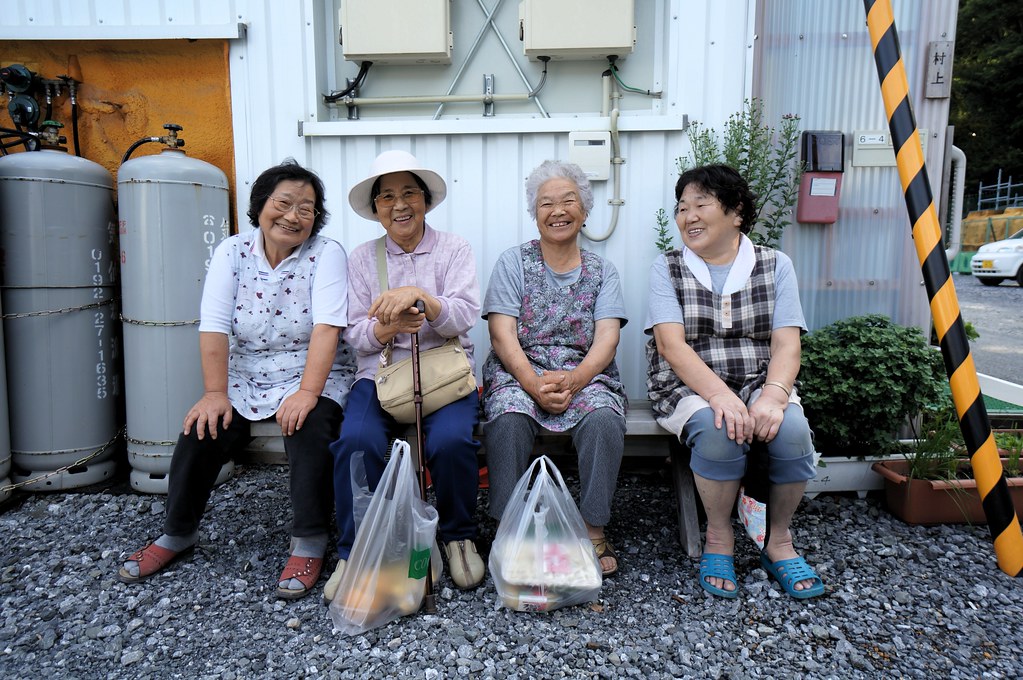
Our Experience at the Childcare and Education Expo in Coventry: Highlights and Reflections
Japan has long been known for its widespread respect for its seniors and a powerful sense of obligation to care for them. The involvement and responsibility of family members in care was even formally embodied in the “Japanese style welfare state”.
Great uncertainty surrounds the future of social care in the UK. We are in a sad situation where the social care system is struggling to provide care for those who need it. This is in part due to years of cuts to local authority budgets. What can we learn from other countries when it comes to the provision of social care?
Social care in England
Social care in England is struggling to meet the needs of an increasingly complex and ageing society. Successive cuts to local authority budgets have resulted in fewer people being able to access care and an increasing reliance on informal care to fill in the gaps in state provision. The knock-on impact on the NHS has also been significant. A sustainable and equitable long-term financing and delivery system – while widely acknowledged to be necessary – remains elusive. The government has announced that a long-awaited green paper on adult social care for older people would be published in the summer of 2018, however, this has yet to be done.
In 2017 the Nuffield Trust undertook a visit to Japan to study the countries social care system. Since then they have written regularly about the ways in which the UK could learn from the Japanese system. Japan introduced a long-term care insurance system in 2000 which established new models of funding and delivery and endeavoured to create a positive vision of ageing.
Part social insurance, part taxation and part co-payment model, the Japanese system aims to provide comprehensive and holistic care according to need. Over time, the design of the system has successfully created a competitive provider market and facilitated a wholesale shift in care responsibilities.
Japan has long been known for its widespread respect for its seniors and a powerful sense of obligation to care for them. The involvement and responsibility of family members in care was even formally embodied in the “Japanese style welfare state”.
Yet as the demographic structure of society has changed, the population has progressively aged with Japan now having the oldest population in the world. The provision of care is increasingly seen as a social (and not exclusively a family) concern.
Long Term Care Insurance (LCTI) was designed to provide cover to all those over the age of 65, according to their needs. It is one of the most comprehensive social care systems for the eldery in the world, built around reducing the burden of care for families.
In Japan, people above the age of 65 apply to their local government, and a complex test is done to assess their needs. A care manager advises on how these needs may best be met, based on the budget they’re allocated and knowledge of local service providers for community-based care. These comprise a range of organisations in the public, not-for-profit and private sectors. The providers that offer such services are often small organisations, embedded in the local community. The number of residential homes is restricted, with a strong emphasis on community care: a decision justified on fiscal grounds but also as the most supportive of well-being.
The LTCI is a living system, with a high degree of centralised control. By reviewing the system at three-yearly intervals, the Japanese’s government is able to adjust national
Its key success, where England has often failed, has been to garner public support through a commitment to transparency, fairness and consistency. Eligibility for care is the same regardless of where someone lives. Every three years the system is reviewed, and reforms made where needed. This flexibility has enabled the Japanese government to remain responsive to public concerns.
Service users have reported that the system is easy to navigate, something which the current system in England is certainly not. The CTCI provision of a ‘care manager’, who is responsible for supporting the individual to make a care plan, help them to choose suitable care providers and coordinate care in the long term is a major factor in this. In England, provision of care managers is patchy and there is no single definition of the role.
At the heart of the Japanese system is a strong commitment to long-term prevention of loneliness and ill health. This is a stark contrast to England’s short-term approach, constrained by budgets and focused only on those with the highest needs. Services in Japan are available to frail, or sick people as well as healthy ones. Things such as group exercises classes, part-time work and even cheerleading all help people to feel included in society.
While the Japanese system is not a magic bullet for the UK, there are many things that we could learn. The Japanese experience suggests that there is real value in embedding transparency and flexibility in the system, helping people to navigate the system and promoting healthy living. Natasha Curry, on of the authors of the 2018 report[1], suggests that England needs to think about:
Great hopes are still pinned on the Government’s green paper but as we write this article, it appears no closer to being published due to the impact of Brexit and a lack of clarity and detail. As our population get older, surely it is time to tackle the problems with the English care system head-on? Let’s hope that this happens sooner rather than later.
[1] Curry N (2018) “Following in the footsteps of Japan: Making social care reform happen”. Nuffield Trust comment. www.nuffieldtrust.org.uk/news-item/following-in-the-footsteps-of-japan-making-social-care-reform-happen


